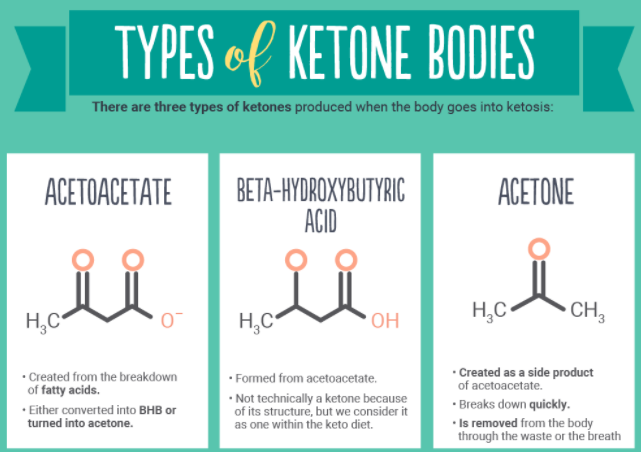Often in Alzheimer’s disease, there is a reduction in the brain’s use of glucose (sugar) for energy. This means that the brain isn’t able to properly function because it’s not getting enough energy to carry out all of its jobs. In fact, when parts of your brain don’t get enough energy, the brain cells start to degenerate and die.
But, this inability to absorb glucose is not consistent across all parts of the brain. In people with Alzheimer’s disease, some parts of the brain are able to absorb adequate amounts of glucose while other parts can’t absorb enough. So, if the front part of the brain doesn’t absorb enough glucose, then it starts to get damaged and you’ll likely see problems with decision making and judgement.
There is hope though! A study in 2016 was done that showed the brain – even when glucose absorption is impaired – can still absorb ketones! Ketones are another energy molecule that your brain can use. We are also seeing that when a person living with Alzheimer’s disease is put on a treatment that increases ketones, their symptoms of dementia are improved!
Let’s take a closer look at ketones.
Ketones are an alternative source of energy for the brain. They are made in our bodies when we break down fat. The only time fat is broken down for energy is when the body has used all of the carbohydrates (glucose) available. Some common reasons for people to start breaking down fat include: fasting, starvation, eating a low-carb diet, eating a ketogenic diet, after a long bout of exercise, or uncontrolled Type 1 Diabetes. Watch this video for a great campfire analogy on ketones.
There are 3 types of ketones:
- Acetoacetate
- Beta-hydroxybutyric acid
- Acetone

Acetoacetate is the first ketone to be made from the breakdown of fat. Then Beta-hydroxynutyrate is made from acetoacetate; and Acetone is simply a byproduct of acetoacetate which doesn’t actually get used by the brain.
Now it becomes quite difficult to get someone with pre-Alzheimer’s disease/Mild Cognitive Impairment or someone already with Alzheimer’s disease to start eating a Ketogenic diet. However, there are products that you can buy to help your body use ketones faster for brain energy. The aim, is to supply ketones to the parts of the brain that aren’t able to absorb glucose for energy. This way, those parts of the brain are still getting enough energy to perform their vital functions and helps to maintain healthy brain cells. In theory, you are preventing or delaying the onset of dementia. Studies are also looking at the ability of the ketogenic diet to treat and possibly reverse dementia. Now dementia by definition is irreversible and progressive, but there are ups and downs during the course of the condition. The ketogenic diet could lift the person back up to a higher functioning status and researchers predict that this could occur among people in the earliest stages of Alzheimer’s disease. Right now however, the best evidence in the use of ketones as brain fuel is for people who have Mild Cognitive Impairment before dementia or Alzheimer’s disease.

